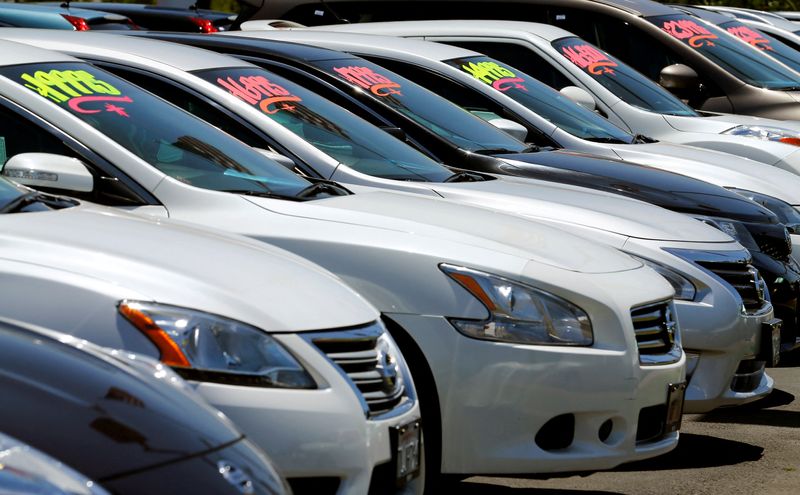(Reuters) -U.S. auto retail sales are expected to dip in January as reduced manufacturing due to the Omicron variant, supply chain constraints and global inflation caused prices to soar amid high demand, consultants J.D. Power and LMC Automotive said.
Retail sales of new vehicles could fall 8.3% to 828,900 units from a year earlier, according to a report released by the consultants on Wednesday.
"The volume of new vehicles being delivered to dealerships in January has been insufficient to meet strong consumer demand, resulting in a significantly diminished sales pace," said Thomas King, president of the data and analytics division at J.D. Powers.
The COVID-19 pandemic has caused bottlenecks in supply chains, driving up costs for everything from labor to raw materials.
The average new-vehicle retail transaction price in January is expected to reach $44,905, the previous high was in December 2021 at $45,283.
U.S. business activity grew at its slowest pace in 18 months in January as a winter surge in COVID-19 infections worsened worker shortages at factories, though demand remained strong.
Total new-vehicle sales for January 2022, including retail and non-retail transactions, are projected to reach 932,099 units, a 15.6% decrease from last year.
The seasonally adjusted annualized rate for total new-vehicle sales is expected to be 14.1 million units, down 2.6 million units from 2021.
Separately, research firm Cox Automotive said on Wednesday new-vehicle sales in January were expected to reach 1.01 million units, a drop of 8.9% compared to January 2021.

Cox Automotive expects seasonally adjusted annual rate to finish near 15.3 million, up from 12.4 million in December, the slowest pace since May 2020.
Despite the added risk, J.D. Power and LMC Automotive expect 2022 global light vehicle sales to improve by 6% to 86.2 million units.